Related Research Articles
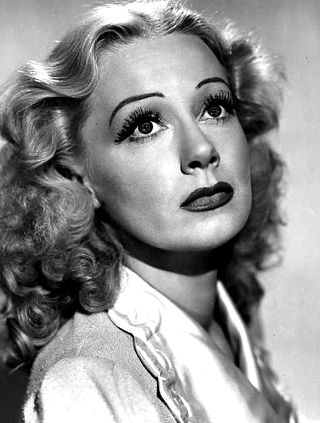
June Havoc was a Canadian-born American actress, dancer, stage director and memoirist.

In American theater, summer stock theater is a theater that presents stage productions only in the summer. The name combines the season with the tradition of staging shows by a resident company, reusing stock scenery and costumes. Summer stock theaters frequently take advantage of seasonal weather by having their productions outdoors, under tents set up temporarily for their use, or in barns.

Evelyn Preer, was an African American pioneering screen and stage actress, and jazz and blues singer in Hollywood during the late-1910s through the early 1930s. Preer was known within the Black community as "The First Lady of the Screen."

Eva Le Gallienne was a British-born American stage actress, producer, director, translator, and author. A Broadway star by age 21, in 1926 she left Broadway behind to found the Civic Repertory Theatre, where she served as director, producer, and lead actress. Noted for her boldness and idealism, she was a pioneering figure in the American theater, setting the stage for the Off-Broadway and regional theater movements that swept the country later in the 20th century.

Richard Rober was an American stage and film actor. From the mid-1930s to the mid-1940s he featured in numerous theatre productions, including being part of the original cast of Born Yesterday in Chicago, and the long-running Oklahoma!. In 1947 he moved to Hollywood and appeared in dozens of B-movies and film noir-type films, including Call Northside 777 (1948), Sierra (1950), and The Well (1951). He died in an automobile accident in 1952 at the age of 46.

The Lafayette Theatre(1912–1951), known locally as "the House Beautiful", was one of the most famous theaters in Harlem. It was an entertainment venue located at 132nd Street and 7th Avenue in Harlem, New York. The structure was demolished in 2013.

Eulalie Spence was a writer, teacher, director, actress and playwright from the British West Indies. She was an influential member of the Harlem Renaissance, writing fourteen plays, at least five of which were published. Spence, who described herself as a "folk dramatist" who made plays for fun and entertainment, was considered one of the most experienced female playwrights before the 1950s, and received more recognition than other black playwrights of the Harlem Renaissance period, winning several competitions. She presented several plays with W.E.B. Du Bois' Krigwa Players, of which she was a member from 1926 to 1928. Spence was also a mentor to theatrical producer Joseph Papp, founder of The Public Theater and the accompanying festival currently known as Shakespeare in the Park.

Elizabeth Tyree was an American actress in Broadway theatrical productions beginning in the mid-1890s. Her married name was Elizabeth Tyree Metcalfe. Professionally she was billed as Bess Tyree.
Valerie Bergere was a French-born American actress who had a near fifty-year career in theatre and cinema. She began in the chorus of a touring opera company before acting in repertory theatre productions for nearly a decade. Bergere rose to play leading roles, but found her true success in vaudeville where for some seventeen years she remained one of the top draws in variety theatre. Over her later years Bergere also took on character roles in some twenty Broadway and Hollywood productions.

Anita Bush was an African American stage actress and playwright. She founded the Anita Bush All-Colored Dramatic Stock Company in 1915, a pioneering black repertory theatre company that helped gain her the moniker "The Little Mother of Colored Drama".
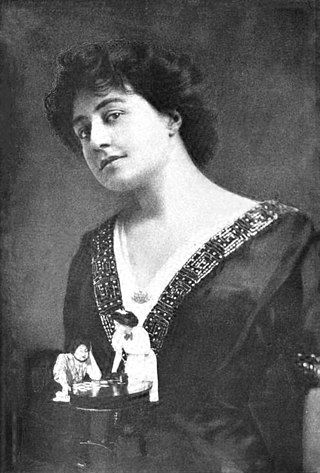
Dorothy Agnes Donnelly was an actress, playwright, librettist, producer, and director. After a decade-long acting career that included several notable roles on Broadway, she turned to writing plays, musicals and operettas, including more than a dozen on Broadway including several long-running successes. Her most famous libretto was The Student Prince (1924), in collaboration with composer Sigmund Romberg.
A number of theatre companies are associated with the Harlem Renaissance.

The Lyceum Theatre was a theatre in New York City located on Fourth Avenue between 23rd and 24th Streets in Manhattan. It was built in 1885 and operated until 1902, when it was torn down to make way for the Metropolitan Life Insurance Company Tower. It was replaced by a new Lyceum Theatre on 45th Street. For all but its first two seasons, the theatre was home to Daniel Frohman's Lyceum Theatre Stock Company, which presented many important plays and actors of the day.

Jesse Allison Shipp, Sr. was an American actor, playwright, and theatrical director, who is best remembered as a pioneer African-American writer of musical theater in the United States, and as the author of the book upon which the landmark play In Dahomey was based. Shipp played an influential role in expanding black theater beyond its minstrel show origins and is recalled as perhaps the first African-American director of a Broadway performance.
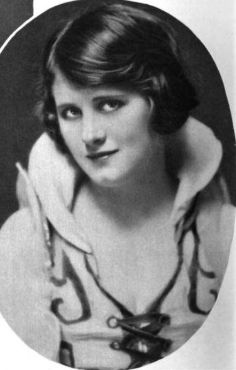
Alta L. King was an American dancer, singer, and Ziegfeld girl in musical theatre.
Rang Tang is a musical that premiered July 12, 1927, on Broadway at the Royale Theater and ran for 119 performances, including a 14-week overrun, during which, the production moved September 12, 1927, to the Majestic – finishing October 24, 1927. It was acclaimed as one of the most successful black musical revues of the latter 1920s, and owed much to a star-laden cast headlined by Flournoy Miller and Aubrey Lyles. The book — in 2 acts and 12 scenes — is by Kaj Gynt; the lyrics are by Joseph H. Trent; the music is composed by Ford Dabney, who tailored some of the songs for Mae Barnes and Evelyn Preer; the score and post-production music was published by Leo Feist; all copyrighted in 1927 and copyrights renewed in 1954.
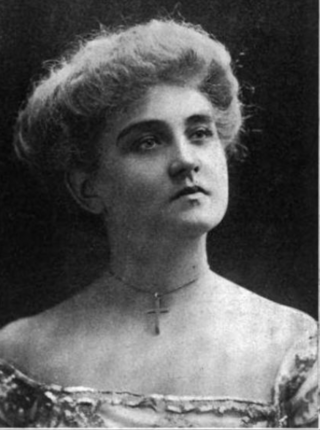
Adelaide Augusta Keim was an American actress on Broadway and in vaudeville. She was known for playing the male title character in Hamlet in several American cities in 1905.
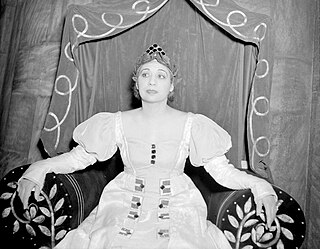
Edna Lewis Thomas was an American stage actress whose career began in New York City during the Harlem Renaissance. She appeared on Broadway, with the Lafayette Players theater company, and in productions by the Federal Theater Project of the Works Progress Administration. Her portrayal of Lady Macbeth in Orson Welles' all-Black "Voodoo" Macbeth in 1936 was much acclaimed. She was an influential figure in Black theater, and was a member of the Alhambra Players and the Harlem Experimental Theatre. She only appeared on screen once, in the 1951 film A Streetcar Named Desire.

Charlotte Louise Johnson, known as Lottie Williams and Lottie Thompson, was an American actress, singer, and dancer. A pioneering performer in African-American musical theater, she is best remembered for starring in several stage works with her second husband, Bert Williams, both on Broadway and in vaudeville. These included several musicals created by composer Will Marion Cook, lyricist Paul Laurence Dunbar, and the playwright Jesse A. Shipp; including Sons of Ham (1900), In Dahomey (1903), and Abyssinia (1906) among other works. In these musicals she portrayed mainly supporting character roles and was usually a featured singer and/or dancer. However, she portrayed the title role and the main protagonist in the Cook, Dunbar, and Shipp musical My Tom-Boy Girl (1905).

Ella Snyder was an American actress. She was active in theaters in London and New York City and on the American vaudeville circuit during the 1890s and 1900s. She was known for her appearances in musicals on the West End and Broadway.
References
Citations
- 1 2 Tanner 1989, p. 103.
- 1 2 "Elizabeth Williams' Oriental Stock Company". The Colored American Magazine . 5. Negro Universities Press, republication 1969. 1902.
- ↑ "Elizabeth Williams". Encore American & Worldwide News. 4: 53. 1975.
- ↑ "The Literary Lyceums and A Peep Into the Social World". Colored American Newspaper . May 9, 1903. p. 2.
- ↑ "Notes of the Theatres". The New York Times . October 30, 1904. p. 20.
- ↑ Seniors, p. 168
- ↑ Hill 2018, p. xxvi.
- ↑ Dietz 2022, p. 426.
- ↑ Dietz 2022, p. 543.
- ↑ "Belasco; Lulu Belle". Billboard . August 13, 1927. p. 69.
- ↑ Mantle 1927, p. 514.
- ↑ "Harlem (Ettinger)". Billboard . September 6, 1930. p. 78.
Bibliography
- Dietz, Dan (2022). The Complete Book of 1900s Broadway Musicals. Rowman & Littlefield Publishers. ISBN 9781538168943.
- Hill, Anthony D. (2018). Historical Dictionary of African American Theater. Rowman & Littlefield Publishers. ISBN 9781538117293.
- Mantle, Burns, ed. (1927). The Best Plays of 1926-27 and The Year Book of Drama in America. Dodd, Mead & Co.
- Tanner, Jo A. (1989). The Emergence and Development of the Black Dramatic Actress, 1890-1917. City University of New York Press.